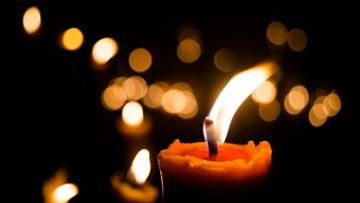What happens when you die in North Korea?
There are many funeral halls in South Korea, but there were none in my hometown in North Korea – we usually
held funerals at home. In the DPRK, the process takes three days, and the very first thing the morticians do is clog the ears and nose of the dead person with cotton. I’ve heard they do this to prevent water from leaking out. Then they fill the dead person’s mouth with raw rice – their food for when they get to the afterlife. After that, they dress the body in clean cotton clothes.
As far as I know, families spend three days like this before the burial because they hold on to the hope that the deceased may be revived. I’ve heard that in North Korea many people claim people have returned to life during this three-day period.
If they don’t , they’re either buried or cremated.
Cremation is a fairly new trend in North Korea, starting in the 2000s, but it’s mostly confined to the capital, Pyongyang.
In my home town we were more accustomed to burying them. Nearby mountains were our favourite places to lay the deceased to rest. Later, we would often visit them and hold memorial services on Chuseok [an annual North Korean harvest festival].
On Chuseok, people visit graves and hold memorial services, mowing the grass and weeding around the grave. Everyone in the family makes sure to be present during these memorial rites.
Ensuring good luck
Taking good care of the grave originates from a North Korean superstition that our ancestors will punish us unless we hold proper memorial services for them.
Lately, people have begun to cremate the deceased and keep the ashes. It’s an easier way to keep the remains, and allows families to continue paying their respects, rather than travelling long distances to visit a tomb or burial site.
North Koreans often believe that their own circumstances and luck will improve if they do this. Though the country doesn’t have an official religion, most people strongly believe in superstition. The North Korean government doesn’t officially allow this but people still seek to meet fortunetellers secretly.
When your fortuneteller tells you that things aren’t going your way because your dead ancestors have been buried in ominous places, you’ll want to move the dead body to a different spot.
Image courtesy of 9comeback at FreeDigitalPhotos.net


Leave a Comment
You must be logged in to post a comment.